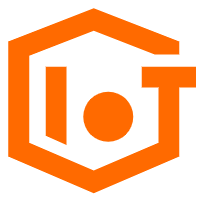Power your innovations with Alibaba Cloud FinTech Support Plan and save up to $5,000 for your cloud adoption.
Featuring guest blogger, Karim Raffa
The blockchain technology plays different roles on many occasions, and its value has been unquestionably far beyond the concept of crypto currencies. From ordering food online while watching the Olympics to buying a house, blockchain is transforming our world. It's undeniable that blockchain has opened the door to a new world of technology possibilities. The main question is how exactly blockchain will reshape our world and what are the extent of the changes it will bring to the tech sphere?
As shared by Karim Raffa, Head of Business Development at CACHE Gold, "Innovative technologies tend to be misunderstood when they first appear. When plastics became popular after World War II, in product after product, market after market, plastics challenged traditional materials and won, taking the place of much of the steel in cars, paper and glass in packaging, and wood in furniture. The possibilities of plastics gave some observers an almost utopian vision of a future with abundant material wealth thanks to an inexpensive, safe, sanitary substance that could be shaped by humans to their every whim."
"Sounds familiar? Having a fundamental understanding of blockchain capabilities and limitations and some understanding of the technology will give you the basic tools necessary to understand blockchain's potential applications. In order to understand why decentralised ledger technology is most famously used for currency, you need to understand blockchain, but you also need to understand the fundamental workings of a currency," Karim added.
Bitcoin is a type of digital currency based on a smart encryption algorithm. The encryption technology that lays the foundation for Bitcoin is called the blockchain technology. The transaction system involved in blockchain technology is far beyond cash and currency. It provides a way through which individuals with little or no knowledge of each other can establish the assets records available to everyone. In a way, it is a defender of the truth.
In a more technical sense, the blockchain is simply a database that contains the records of each Bitcoin transaction. The technology allows copying of the distributed record in thousands of computers, namely Bitcoin "nodes," which are available to all the people throughout the world and are highly reliable. Bitcoin uses the Proof of Work (PoW) consensus mechanism to ensure the integrity of its operations, often requiring powerful computing power. This is commonly known as "bitcoin mining". During operation, the nodes will update each Bitcoin transaction throughout the blockchain.
Satoshi Nakamoto, although unknown to many people, is believed to be the founder of Bitcoin and the man behind the concept of the blockchain. In 2008, Satoshi Nakamoto published a paper titled "Bitcoin: A Peer-to-Peer Electronic Cash System." The paper focuses on Nakamoto's vision of a decentralized system and ways to accomplish the same. It also addresses how banks need to avoid traditional payment systems to create a decentralized system truly and replace reliable third parties.
Fast forward to 2021, blockchain is still as relevant and as popular since its inception 13 years ago, confirming not only its importance but also its potential to be one of the most ubiquitous technologies in our society. According to Karim, "The move to apply blockchain technology to proof of provenance solutions, or NFTs, and certificates of authenticity, remains a lateral innovation. You need a deep understanding of the sector in which you're looking to apply this new tech for the innovation to hold."
Currently, three trending blockchain-based products exist:
There is a start-up company that made a bet on this idea. The company has developed a mechanism that can adhere to extremely small Bitcoin transactions (so-called "Bitcoin dust") and represent bonds, stocks or precious metal units by binding the "dust" with additional data.
Since a blockchain-based app can be considered a "fact machine", it is possible to use blockchain to protect valuables by combining it with other pieces of information into the ledger. For example, you could "attach" distinct features to the blockchain data to provide an irrefutable identification. Many applications such as 'Onename' stores the personal information by setting passwords, or 'CoinSpark' which specializes in "notarization."
One of the most ambitious applications of blockchain technology relates to its ability to execute "smart contracts" automatically in normal cases. Bitcoin is "programmable" and can play its role in certain conditions. One application of this capability is to pay the rewards to miners only after successful addition of more than 99 blocks - obtaining rewards after solving a problem is helpful to maintain the proper operation of blockchains.
Although blockchain is open and exciting, some people are skeptical regarding its security. There are doubts that security errors may occur leading to failures in extending the procedures. Some believe that Bitcoin and other small apps may not be able to support thousands of services provided to tens of millions of users. Although Satoshi Nakamoto's delicate design has proved impregnable by far, academic researchers have come up with a way to prevent some furtive miners with questionable motives from directly controlling 51% computing power, so that they can maintain the blockchain obediently. In this way, it is less likely to control a large part of network resources than before, hence ensuring security.
One of the major concerns here is the impact on the environment. The very framework of Bitcoins depends on the Proof-of-Work mechanism. If miners do not mine, there will be no reward to ensure that all Bitcoin-related parts will be involved in this game. However, this process produces a lot of meaningless calculations. According to blockchain.info, miners of the whole network are carrying out 450,000 trillion calculations every second, and each calculation consumes energy.
Although miners keep all the details of the utilized hardware, it's hard to find out the actual electricity consumed by the network. Even after optimal usage of hardware, the annual electricity consumption is about two trillion watt-hours, which is more than that consumed by 15 million residents of Kings County in California's Silicon Valley.
The computers used for mining can be made more energy saving to replace the Proof-of-Work mechanism. Developers are also developing a "lightning network" for Bitcoins, which can deal with plenty of small transactions outside a blockchain. Such development would ensure faster connection to enable quicker broadcasting of larger blocks than before.
Miners can also install the new version of Bitcoin client which can support larger blocks. Although some miners have deployed the new version already, it still seems to be vulnerable to attacks by the Internet. Ideally, a large number of small transactions have pushed the system's limits, which essentially shows the necessity for upgrading.
In the current scenarios, when financial companies conduct business with each other, it takes several days to synchronize their internal ledgers, but this process will retain funds and increase risks. It will take a longer time for distributed ledgers to solve such problems, implement digital banking, and complete transactions within seconds or minutes. They may save a lot of expenses for banks: according to Banco Santander, such books can reduce bills of $20 billion annually by 2022. Suppliers still need to prove that these books can deal with transactions with a price much higher than that of Bitcoins, and some big banks have standardized these emerging technologies. Among them, UBS proposed to create a standard "settlement currency." UBS, jointly with Goldman Sachs, JPMorgan Chase, and other 22 banks, invested in establishing a blockchain start-up R3 CEV, which will be committed to developing a standard framework for private ledgers.
The problems faced by banks are not exclusive. It is hard to maintain the relationships with various companies and public institutions, in addition to the challenges of frequently incompatible databases and high costs of communicating with each other. Ethereum the ambitious distributed ledger project, aims to solve these problems. The masterpiece Ethereum, developed by talented 21-year-old Vitalik Buterin from Canada, can deal with more data than Bitcoin. It comes with programming languages, which allow users to prepare more complicated smart contracts, create invoices upon receiving goods or automatically send dividends to stockholders when profit reaches a certain level.
Ethereum is a decentralized platform based on blockchain technology. It runs smart contracts, which are applications that run without any possibility of downtime, censorship, fraud or third-party interference.
The usefulness of programmability provided in Ethereum is not just limited to track and record people's property, but also extends to many new aspects. One of them is the built-in car keys in Ethereum, which allow for the sale and release in agreement with relevant rules, producing a new P2P car leasing or the sharing mode. Not surprisingly, some people think that this plan is too ambitious.
Ethereum will not only continue to arouse response but also inspire both start-ups and established magnates to continue exploring the potential of distributed ledgers. Although many have underestimated the ability of accountants all the time, the importance of ledgers remains self-evident.
Blockchain has a lot to offer even for scenarios related to the Internet of Things dealing with a network connected by billions of static everyday objects, such as refrigerators, snubs, and lawn sprinklers. A report by IBM titled "Device Democratization" indicates that it is almost impossible to make centralized tracking and management of billions of devices. Hence, it is unwise to attempt as it may make the overall management process vulnerable to hacker attacks and government monitoring. For such cases, distributed ledger system seems to be a feasible and tangible solution.
Blockchain technology has and continues to unlock new possibilities in different spheres and aspects of everyday life. The first generation of enterprises to use blockchains were financial institutions. From its proven applications in finance, banking to smart property solutions to even rationalizing the stock market, the blockchain also plays a role in other fields. There are reports that the Nasdaq will soon enable an equity transaction platform based on the blockchain technology to record the transactions of private companies.
The technology has also gained prominence within the domain of tamper-proof private blockchains. The reason is the technology developed by anti-government liberalists enables banks to meet the needs of governments well after knowing their clients and anti-money laundering rules. Following this, the Bank of England also acknowledged the significance of blockchain technology on the financial industry after remaining conservative for a long period.
This blog highlighted the fundamentals of bitcoins and blockchain technology, their evolution, applications in various fields, and their future. Additionally, it talks about the disadvantages of the Bitcoins including the security aspects and ways to address these problems. Every technology has an inception cycle while growing from an idea into the maturity. Whether you are a software engineer, a financial analyst or a legal person, blockchain technology offers promising technological revolution worthy of the future. Let's aim at unlocking its hidden potential to change our lives and influence our future and the world.

Disclaimer: The views expressed herein are for reference only and don't necessarily represent the official views of Alibaba Cloud.
Alibaba Cloud Records Fastest Growth among Global Top Cloud Providers

2,593 posts | 791 followers
FollowAlibaba Clouder - December 6, 2016
Alibaba Cloud Community - July 6, 2022
Alibaba Clouder - March 6, 2017
Alibaba Clouder - December 5, 2016
Alibaba Clouder - December 21, 2020
Iain Ferguson - January 21, 2022

2,593 posts | 791 followers
Follow IoT Platform
IoT Platform
Provides secure and reliable communication between devices and the IoT Platform which allows you to manage a large number of devices on a single IoT Platform.
Learn More IoT Solution
IoT Solution
A cloud solution for smart technology providers to quickly build stable, cost-efficient, and reliable ubiquitous platforms
Learn More LedgerDB
LedgerDB
A ledger database that provides powerful data audit capabilities.
Learn More Global Internet Access Solution
Global Internet Access Solution
Migrate your Internet Data Center’s (IDC) Internet gateway to the cloud securely through Alibaba Cloud’s high-quality Internet bandwidth and premium Mainland China route.
Learn MoreMore Posts by Alibaba Clouder